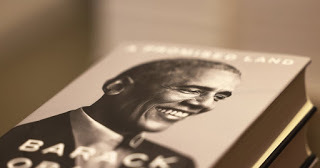Siddhartha Bhasker's Blog
May 9, 2021
Good PhD''s
Few days ago I wrote a blog titled Rotten PhD. Given my battles with schizophrenia, these kind of dark ideas do come to me time and again. But then one thinks about it. And after prolonged thinking, it is clear to me that doing a PhD at one of the best business schools in India has been terribly good for my professional career and personal growth.

Doing a PhD is a tough experience. You are expected to be a subject matter expert. The biggest issue is that one is alone. Doing the work in a field in which nobody else is an expert in. It is a lonely battle. But it is an interesting and a fulfilling one.
I worked on the very interesting and the exciting field of carbon taxation on the Indian freight sector. Climate change is a burning issue in today’s world. Global temperatures are rising and the human ecosystem is being harmed. Examples of it are everywhere, the recurring hurricanes in the US, the loss of biodiversity on the Himalayan region, the rising seas, the melting of glaciers and so on. Carbon taxation is widely regarded as an effective tool to combat the perils of climate change.
Unfortunately I fell ill with schizophrenia during my PhD times. It was a trying and a testing time for me. I had delusions and hallucination which were terrible to the least. Yet the system allowed me to work and helped me achieve what I wanted to do. This shows the effectiveness of the system and reiterates the fact that it is one of the best in the world. I am thankful to be a part of that system.
The PhD program is world class. Students go to all over the world after studying from this program. Staying in the program fills you with a certain kind of energy and a will to make it big in the world. Of course one is expected to work hard. But working there is full of fun and frolic, not the mundane kind. This is what cheers you up.
My thesis brings out some interesting themes in the field of carbon taxation. It is one of the early works on the effects of carbon taxation on the Indian freight sector. The results clearly point to the need for a shift from fossil fuel based energy sources to renewable based energy resources. It also touches upon the effects of different values of carbon taxation on this sector. The value of carbon tax is still debatable. And it is a very interesting field to work on.
As I have already written, I am happy to have done my work in this field at the business school. I am sure works like these will be coming out of the school to expand the knowledge base and add to the truths of science.
May 7, 2021
Anatomy of good experiences
How do you define a good experience? You cannot. You just feel it. Its like love, something which cannot be properly defined. Just like the heart yearns for love, the body yearns for a good experience. One always looks for good experiences around and they always come at a cost. And good experiences have a price which people around have to pay. Nothing is free.

One of the best examples of a good experiences is studying at the best business schools in India. Anyone who has applied to these programs knows how difficult it is to get into these schools. The price is high. But the experience is awesome.
The business school crowd is an enthusiastic crowd. The energy of the students and the professors is contagious. Once you are in these schools, the constant buzz of the class, the rigorous assignments, the healthy debates, the coffee stall friendships, all contribute to the good experience that you feel. The regular football matches, the mess food and chats, the regular parties, the movie watching experiences, makes one feel so connected to each other.
When I was at a business school, I felt very alive and energetic. It was as if a certain kind of energy had come into me. It was as if the environment was telling me live my dreams. It took me all over a process of discovery of my ambitions. The first two years of my PhD. I had one of the best times of my life, made new friends, read interesting subjects, took part in football matches, and attended classes which were full of information and deep knowledge.
The life in the dorm was alive and kicking. Once you come from your classes, your dorm mates are there for you for chit chat and discussions. I remember the dorm parties where there was competition about who could make better cocktails. And even though there was something to work upon on everybody’s mind, the parties were never boring. The kind of top companies coming for internships and campus placements were always on the list of discussions. Men and women would not only show who they are through their achievements, but also share flirtatious glances at each other. Many loving and healthy relationships have been formed at these places.
Then when I got wholly into research, the exploration of a field became an important priority for me. That is when the library becomes your best friend. Hours and hours are spent in the library browsing through books and looking at research articles. You meet familiar faces there and have a chit chat in the reading room. The ambiance of the library is pretty cool specially if you go in the morning when one can hear the chirping of birds on the trees outside while studying research papers.
After returning from the library, one can relax on the tea stalls in between to have some garmagaram tea and pakaude. There you see the basketball team passing by for their practice. Big lads with a ball in their hands trying to impress women. You come back in your dorm room, get freshened up, and then again you get back to an assignment you have to complete. Work is tough at those places and they make sure it is enjoyable.
Good feelings never go away. They should never. They are to be cherished forever. The best business schools give this feeling and that is why all the members are a happy and healthy bunch.
May 1, 2021
Chatukarita 2.O
Shrilal Shukla in his book Raag Darbari has given a vivid account of a phenomenon that pervades the Indian social system. This phenomenon which is also implied by the title of the book has a common place name now. It is called Chatukarita. A simple literal translation is licking up to someone. But the meanings of this word are deep and the form this phenomenon has taken over the years in this country is a subject anyone interested in the Indian psyche should definitely explore.

There are different kinds of Chatukarita in India depending on where one is and who one is dealing with. There is the one in hinterlands in India which is raw and visible to any naked eye like the one we see in the novel. Here if you do not lick the ass of your seniors in a clear way, you won’t go up. This is Chaturakita 1.O. There is the other kind of Chatukarita which is present in the higher social class of India. Like the ones present in the higher ups in the government, the corporate sector, and the Indian academia. It has developed into an ecosystem of its own, diverse and rich with mechanisms tougher than the ones we used to read in Organic Chemistry and biochemistry. I call this kind Chatukarita 2.0
In this kind, the ass licking is done in a little sophisticated way. That is people who do this, and there are many you can find in this country everywhere, don’t sing tunes of praise on the face of their superiors. This might offend the superior and it may attack his self perceived notions of merit. Because most people at top in India have this notion of merit and reason that they carry with them. Here the allegiance to the superior is shown in subtle ways. It could be doing what the superior asks you to do without questioning the merits of the point. It could be by aligning with people your superior wants you to align even though you do not feel it is important. And most importantly, you have to know the right time to praise the superior in the exact manner he or she wishes. And for that one should have the knack of knowing the superiors wishes.
Now this looks alright on paper. Why one shouldn’tbe like a Chatukar, after all the superior is more powerful and has control over his subjects. And it makes strategic sense to lick ass. Many people in Indian top classes have had an important component of Chatukarita in their blood and actions. They have gone up by doing exactly what they have been asked to do, putting their head down and just following orders. And it is a self propagating system. Once you have done Chatukarita, you expect it. Your subjects will do it. And so it goes on. Looking at it this way, there does not seem any problem. There is a structure and order which this kind of behavior maintains. And overtime we have become comfortable in these systems.
But this comfort is dangerous. This kind of a system curbs innovation and independence and promotes people who start believing that it is not the quality of their work and ideas that are important, but the quality that they can lick someone’s ass. Take for example the Indian PhD system where your supervisor holds power over you. Research is about asking questions and exploring ideas. It is beauty of this exploration that invites people to give years and years to a topic. A system of Chatukarita in research is a death knell to this whole process of creation and investigation. If a scholar is expected to follow everything that the supervisor and needs his nod of smallest of ideas, and when discussions are not based on the merit and relevance of ideas but whether the supervisor is satisfied with your ass licking qualities or not, it becomes very difficult to make an important contribution. This is doubly harmful because then not only one looses an appetite to think but also develops a fear and an impression that he may not be good. Good work does not flow from this system. And I don’t need to tell you how good we are doing on the research front as a country.
I can go on and on about the properties of Chaukarita. But I would like end it here and pray that you stay well in these times of distress.
March 19, 2021
Rotten PhD's
Every year Nobel prizes are announced. An we Indians appreciate the winners in science as if an uncle in an Indian society appreciates the family of his colleague whose child has bagged a job in a top firm in America. Something they wish their child had too, but unfortunately never will.

Why don’t we produce winners in science, top class scientists who make a mark in their field? Scientists who change the field for the better. Work that when you read it, it runs down to your heart that says ah! People who are widely respected in their field all over the world. People who are heard and whose opinion carry weight in the world. Most Indian scientists we hear about are those who have shifted to the western world early in their lives and have been trained there. Our country has so many institutes, Universities. Why can’t I recall one biologist, one economist, one physicist worth following in this country?
It’s a tough question to answer. Like any complicated questions, the answer has many strands like a hydra. We may not have a scientific aptitude. We lack funds. All our good students go to the west. There is little academic freedom in this country to pursue your work. There is little appreciation for good work unless someone from the west puts a pat on the back. Indians don’t have an original eye. The list goes on. It will require more than a thesis to get to the answer.
But there is something I want to say. It’s about the Indian PhD system. In the west, if one looks at most of the successful scientists, their love and aptitude for science evolved during their PhD. One cannot do good research unless one loves science. Loves problems. Love to apply scientific methods to problems. Doing research without the love for science is like sitting in a boat without a row, there is hardly any chance you will move forward.
I can safely say that the Indian PhD system crushes your love for science. I remember I was very excited once during the early days of my PhD, I thought I had discovered an interesting research question. I went to some of the professors at the Institute with the problem. I let my advisor's know that I wanted to work on this problem. The issue was close to my heart and the work was against corruption in India. Instead of encouraging me, my advisor's almost shut me down. I was made to feel that I was doing something that was totally worthless. The message was to work on something which the adviser wanted. My interests had no weight.
Fortunately, I have had the good fortune to spend some time with the PhD students of the US. There is a sense of camaraderie when you work there. Advisor's give a chance to explore your interests. They are more professional in behavior. And this was for my internship, I am sure PhD’s are more inclusive too and have academic freedom. It is a terrible experience to do a PhD in India. How can you expect someone to win Nobel Prizes if you don’t even allow them to explore their interests? Filling a student with a passion for research is absolutely essential in a PhD system. But the idea here is to just produce papers on the topics which are trending. Passion is like a ghost, it is to be shooed away. Compliance is the mantra. It might work in some systems, but in the PhD system, compliance is like a hammer that breaks the back of the scholar. And we hear in Indian are breaking their backs. So unless their is an exception, the rule is that every year we will have to hear the news of Nobel Prize winner like our society Uncle.
February 4, 2021
The White tiger test
There is a very simple test of how you feel about India. I call it the White tiger test. It consists of answering a simple question. Do you like the book The White tiger by Arvind Adiga?

Some people would say yes. For them India is a land of poor and the hungry. Of people who could go to any extent to get a decent standard of living. Of violence and trickery. Of exploitation and upper caste bias. These traits of India, which come out clearly in the book shout out to expose the real truth behind the veils of grandeur and hypocricy in the country. If you feel this is true you would love the book.
Some people say no. For them this is the country of unity in diversity. Of mutual love and cohabitation in difficult circumstances. Of sprinkles of success here and there. Of a functioning democracy. Of the land of merit. The India of these people is no where in the book. And if you belong to this category, then you would hate the book.
Where do I stand on this test? If I had taken this test in my 20’s I would be in latter category. I could not read the book then. I put it down. I hated it. Now after living so many years here, I love the book. I read it recently and also watched the movie. Laughed out loud at the humor and appreciated the lens the writer has put on our country. Something which is well known to everyone, yet gets concealed in the hyperbole.
The problem is not that things like these happen only in India. The recent Booker prize winning book, Shuggie Bain portrays a pretty dreary picture of the Scottish city of Glasgow. A story of a broken family with an alchoholic wife who takes multiple sex partners, a taxi driver husband who leaves her for someone else, her children who leave her one by one expect Shuggie the titular character who is gay. The book does not paint a good picture of the city with its low income parts, the banter and the violence and mental health issues. Yet it does not look like anybody is protesting.
Another book which comes to mind is the stream of consciousness Booker prize winning book Milkman from Anna Burns. An Irish woman in the book is being stalked by a man. The book paints a dreary picture of war torn Ireland and takes us into the mind of a fearful woman. If anything like this about Jammu and Kashmir is written today, I would not be surprised if it raises eyebrows.
Closer home we have Munshi Premchand. His books bring out the stark class and caste discrimination in his times. The story Kafan is a masterful portrayal of a man not having a shroud for his death. I guess probably those times were different. Munshi Premchand is considered one of the greatest writers in India. I wonder what would have happened to him had he been writing in today’s times.
Writers write about the bad things in the society. It is sort of their job to sweep out things so easily shrugged away below the rug. Some of the best books are about painful things in life, things that others do not want to talk about. The White Tiger brings one aspect of it beautifully and convincing manner.
Then of course, a reader has the choice to feel offended too. People have inbuilt perceptions of things around them based on their personality and experiences. A portrayal not suited to their inner worldview can bring out the worst in some of them. Who knows it better than Salman Rushdie!
Anyways do take the test. A better way to know how you feel about your country.
January 26, 2021
Al Politica!
Politics is ubiquitous just like air. And it is tempting like sex. It is also a necessity in today’s world if you want to be someone. Making one’s way through political waters could be the prime talent that can take you from being an unknown to the known. Be it corporate, or academia, if you know how to play the corridors of power, you are in for a successful life. At least for a while till the cards change and you find yourself on the other side.

Politics is a killer too. It kills justice and fairness. A host of laws and regulations have been made in each and every filed to prevent the kind of politics we see nowadays. Yet it is there like mosquitoes in my village. Hovering, biting, killing. The only difference is unlike mosquitoes, some people like politics. They are adept at it and could go to any lengths to get what they want. Asking them for justice and fairness is like asking them to crack the IIT JEE exam without leaking the papers. They just cannot do it.
Indian academia is a good example. People vying for power, vying for committee seats, vying for lucrative positions, vying for promotions. Power structures forming within Universities and Institutes. People in power using it to follow their instincts and inhibitions rather than following proper rules and procedures. Other sucking in to these people in power without having the hint of independence so needed in any organization. The national politics being mirrored in some of these powerful institutes with people more eager to please their political masters than to actually fight for truth. And these people then being awarded and felicitated in a way the political masters see fit.
One can always say that it happens everywhere. No country and no place is free of politics. I would only like to point out to some of the best things in the world. Look at them carefully and you will find that they are based on merit and a rule of law than politics. One cannot get into the flagship courses in this country, one of the few things good here, without cracking competitive exams. There is no politics in these exams, everybody gets the same question paper and gets in if they cross a threshold. Of course you can argue that the rich can send their children to good coaching institutes but then that is something the authorities of the exam cannot really stop. Look at cricket. Lalu Yadav tried tooth and nail to get his son into cricket. But he could not survive simply because you can get into a team through politics but ultimately its your performance that matters on the field. No politics can save you from that. And where did he go ultimately. Into politics!
Some of the best US Universities are based on merit in their faculty recruitment, as far as I know. You cannot get into Harvard faculty if your guide telephones the Harvard committee that you are good. One needs to be exceptional. And every PhD student there knows that. Preparations are made since the first year of PhD to mold the student into the ways of research. Opportunities are provided. Dreams are set and promoted. Unlike Indian PhDs where systems other than your interest in research play a very important role in setting the tempo. Politics being the central theme of it all. And the performance of India in research is for everybody to see. Waiting for a good original Indian research paper which makes an important contribution in a field is like waiting for Indian football team to play the world cup. It looks like it is possible. Just does not seem to happen.
Anyways politics is there to stay. And we have to deal with it. Just like we deal with the Salman Khan movies nowadays. By staying away!
January 3, 2021
Why everybody wants to do an MBA?
When I was at kgp, in our final year, BLACKI was a cool term. It meant students who had successfully secured an MBA seat in Bangalore, Lucknow, Ahmedabad, Calcutta, Kozikodhe and Indore IIMs. Students who belonged to this group, had their eyes gleaming and there chests upright. They spoke with a swagger, interspersed with a little dose of humility so as to sound human. I never appeared for CAT in my final year, had no intention of doing an MBA. I also never understood why there was so much enthusiasm for people choosing this as a career after slogging for engineering and science for four to five years.

I have been listening to Thomas Picketty’s Magnum Opus ‘Capital in the twenty first century’. And now I realize why the rush. Managers are the nuevo landlords of this generation. People whose income, except a few big capital owners, who still rule the roost, have skyrocketed in the last three decades. Income from the super managers and managers at high position holds the maximum share of income in most of the developed and developing nations. They sit on the upper decile of income earners like a span of ministers. Some of them have their presence in the upper centile as well, in the race for the throne.
Engrossed in movies, research, classes and few other things that cannot be talked about, I had no idea of this transformation which had taken place in the economy, while I was in the final year. Everybody wants to climb the income ladder. Money is power and the more you have, the securer you would feel, in your den. All students who had their eyes on climbing higher in the income race knew that it was an MBA from a good institute which could give them that. And they made all preparations they could.
I, on the other hand had no plan. Going with the flow, like a man rushing into the Mumbai local, without even making an effort, I sat for the placements. And got selected in a consultancy firm. I applied to some Universities, and got selected in one for a PhD, which I eventually decided not to go for. Even while working for the firm, I could not decipher this secret which was widely well known. Then bored and angry at the shallowness of the world I was in, I decided never to work for people who controlled wealth. Maybe it was a feudalistic outlook that made me think that most of my friends are going to work for people who own wealth. That is they are the warriors of the super rich who use them to proliferate their wealth. I think I may have been a little wrong here.
Managers who are successful create their own wealth. And they own a part of what they create. I may sound naive but this simple fact was not clear to me in my final year. Not that the intricacies are crystal clear now, but it seems that one can become super rich in today’s world if one is a manager. Few steps higher than the other professions like professor, teacher, engineer, and so on, something which was not true before the 1980’s when this phenomenon started.
So would I have been a different person had I known this earlier? Probably not much. I instinctively knew that world is not for me. And after one and a half years at a corporate firms, my instincts were assured. Life is much more than money. And power can come through other ways. But a sense of peace prevails when you understand a little bit of your past. I am not sure with so many other IIMs coming up, if BLACKI is still in use. But one thing is for sure. With money pouring in the bank accounts of the managers, the eyes are still gleaming, the chests are still upright and the swagger is still swagging around.
December 27, 2020
The Memory Conundrum
If lives are lived, memory is formed. As life goes on memories are embedded in the dungeons of the mind, as if they are rich minerals embedded deep under earth. They lie there, dormant, sleepy, and silent. They may have been judged, may have been interpreted by the prism of the consciousness of the memory holder. These judgments and interpretations color the memories and give them a form of their own. These memories, sweet, bitter, joyous, hellish, all get together to make the memory holder what he or she is in this world.

It is strange how much these interpretations change when the memory holder undergoes a change of personality. The memories once sweet could become salty, once bitter could become pale and unworthy, once pale could just brighten up. There was a time I was totally depressed. And all my memories sort of turned bitter or inconsequential. As if they never had any steam, as if the world that passed by eyes never happened or should have happened. As if my memories were the pall bearers of the dead weight I was carrying within me. When I got well and brightened up, the same memories jumped up and shouted to be remembered. To be reinterpreted and judged once again and to throw away the badges of negativity I had placed them under.
Today I talked to my brother who went to IIT kgp just like I did. We talked about our days there. And now those memories won’t leave me. I hated them sometime ago. I wished I wasn’t there. And now I wish I am there again. With friends, with the big banyan trees, with the tea shops with red teeth stained dadas selling bun maska, with the serenity of the library, with the rigour of the classes, with the football matches. The same memories which daunted me when I depressed, now enlighten me when I am not. I feel my interpretations have changed.
Memories can also be deceptive. That is they may not come in their true form. For people like me who suffer from schizophrenia, one has to be really careful with memories. The mind can throw at us things which never happened. Incidents that are imaginary, images which are unreal. As Prof. Nash said when he recovered, the idea is to be rational, to be able to filter out the real from the unreal. To be able to pick out some of them and to be able to closet the others. I am sure this happens with other people too. To varying degrees.
Memories can be connected to each other. Like a string of ribbons, coloured differently. Just like memories have to be interpreted these connections have to be interpreted and reinterpreted too. Our mind does this all the time. And as we change as people, these connections change. The ribbons join themselves in different patterns. A whole new story may emerge out of a labyrinth of facts, an important event can become mundane and a mundane event can suddenly take the form of significance. Ask the historians. They know it the best.
So does one trust the memories? Does one go about feeling them or does one pay no heed to them wafting around the mind as if they are fishes and our mind a deep ocean? Can we actually afford to get rid of them? I am sure in the future there were will some artificial intelligence to achieve this purpose. But as of the present world, it does not seem likely. If one believes the great South American writer, Gabriel Garcia Marquez in his book Love in the time of Cholera, “He was too young to know that the hearts memories eliminates the bad and magnifies the good, and thanks to this artifice, we endure the burden of the past.”
December 14, 2020
An Obama in India?
I am reading the wonderful book by former American president Barack Obama titled ‘A promised land’. It’s his story told with honesty and intelligence. One is astounded with how much he remembers and how literary he can be at times. Obama is one politician who impresses, who gives hope that principles can still have a seat in the murky train of politics. That not all politics is about status quo and bumping fists with Machiavelli. That power can sit in the lap of someone who genuinely wants to make the world a better place. And most importantly of someone who can speak the truth and accept their own weaknesses and faults.

One then immediately thinks of whether India can have an Obama like politician. Someone who is an outsider, someone who feels the pulse of the people, has principles he or she follows, and someone who has risen up from the ground with sheer talent. Nothing is impossible so one cannot rule it out. But then there is the gut feeling that it will never happen. Not because people as talented as him are not present in the country but because people like him will either never join politics or will never rise up if they join.
I am not a political expert but I don’t think I need to be to come to this conclusion. In today’s India, to rise to power at the center, you either have to be a Muslim hating Indian or a bootlicking one. You have to have the knack of looking over the gross incompetencies of the system in addition to able to praise the status quo reinforcing the existing incompetencies. If you want to rise up, you have to bend down. Close your heart, take unfair sides, tell lies, until you are an expert in all of this. Till you reach the top which in our country would be at the age of probably more than 60, you have become a person who does not instill any hope to the fair and just but only to the cronies and the greedy.
What will happen to Obama if he was born in India? He would probably go to an IIT and then go to the promised land to live a life of hard work and comfort. He would have in his youth sensed the futility of making an effort here. He would hope that some day his children will learn the values of the constitution of the most powerful country in the world. And bring some change where change can actually take place.
I know it is getting too negative of my own country. Everything cannot be so bad. And it is not. There is our rich culture to talk about. About the many achievements, about democracy, about pluralism, about the colours of festivals and about the many examples of brotherhood and sisterhood. About humanity. It is true. It is not that bad, some people would say. But why then it does not instill that confidence? Why then we have more Obama’s rather than sons and daughters of politicians, read from abroad, uninspiring, compliant, without any flair?
Maybe there are examples of Obama like politicians. Maybe I don’t know. Maybe it is actually not that bad. Or maybe it is. There are so many maybe’s. An Obama in India is needed, this is something I can say with certainty. Someone who calls a spade a spade and steps up on the tempo. One can solve so many problems of this country if one Obama can come across. Problems which are crying to be solved but have been kept on the docks just because the people who are responsible are not interested. Or are just plain incompetent. So, an Obama please!
December 4, 2020
Disability and jugad
Yesterday was the International disability day. It’s a day to remember and perhaps celebrate disability. In India, like many other things, disability runs on the jugad system. When people get disabled, their life has to be lived as if the country is incapacitated to look after them. As if people do not have time for them. As if a man who needs a wheelchair has to run his life on a pair of crutches. And most importantly keep smiling. Because the others who are fit want them to do it.

Today I was talking to a friend and we discussed why people are so unenpathetic in this world. It’s a serious research question. When I was doing my PhD, I had a mental breakdown. I had serious delusions and hallucinations. I was sick for three years, spending all the time in my room. Everybody around me knew I was sick. I stayed like that for three years spending a time which would be worse than staying holed up in a dungeon. But in those three years not a single soul came to help me out. My advisor had no time to talk to me. And I was in the best institute of this country where people sit at top business companies and government positions. There are even courses on ethics. We discussed why this is so. And none of us had an answer.
Daniel Kanheman in his book Thinking fast and slow tries to answer these questions. There was an experiment in which a person needed immediate help and out of 20-30 people who could help him, very few turned up. I think their conclusion was that everybody felt it was someone else who would help the person out. It was not their duty. In my case no one turned up. This is not a surprise, but a norm.
Thankfully the country has good laws on Disability. But everybody knows that laws in our country could be more disabled than any other thing. Our policymakers have still not figured out how to make those laws implementable. The Mental Healthcare Act for example is good. But it needs proper implementation before the people could reap the benefits of greater independence given to the mentally ill. Till then the jugad system continues.
A disability does not mean a person is finished. Or that the person cannot achieve great feats. There are numerous examples of disabled people doing some wonderful things. Hope which is an ingredient of any success needs to be nurtured in case of disabled people. If hope dies, the person will die. Even if they live. And it is the hope of a good future which is being snatched from many disabled people. We die in the minds of people. And when that happens, the person feels it. And that punishment is greater than any other the society can give to its members.
And surprisingly, this is not limited to illiterate people. Even the most literate and successful people want to stay away from the disabled. Or only meet them at charities. Disability is connected to weakness. People could not be more wrong. It is not the weakness that holds them back, it is the social structures. A mentally ill person cannot even think of navigating the bureaucratic and complex structures of business or politics. Not because they cannot understand stuff. But because people do not want to understand them.
I am going to give you a cliche that things should change. They should always. In a direction where everyone can be happy and satisfied. In a direction where people are not forced to smile or comply but do so with their hearts open. In a direction where someone who is sick is not left to rot because people around them are busy looking after themselves. It will then be the time to celebrate the disability day with gutso.



